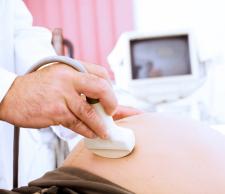Aggregated News

Natalie Fitzpatrick, 29, had been through three rounds of in vitro fertilization when her doctors suggested she try immunotherapy. Each of her IVF treatments had resulted in a miscarriage, and her doctors wanted to test her to see if there was something wrong with her immune system. But nearly $4,000 later, the additional testing proved fruitless. Fitzpatrick’s next two IVF cycles were unsuccessful—she miscarried once more—and she’s still trying.
Testing the immune system is one of a growing number of additional services offered to couples who can’t conceive through IVF treatment alone. Some clinics say they do it because certain antibodies can interfere with embryo implantation, but these claims are not backed by evidence. According to a study that appeared in the BMJ at the end of November, the same is true for many other extra services—of nearly 30 fertility clinic add-ons reviewed, only one increased a woman’s chances of having a baby. That was an endometrial scratch, in which a small nick is made in the uterus’s lining to increase the likelihood of an embryo implanting on it. And...



